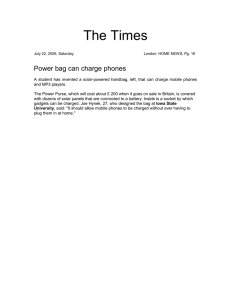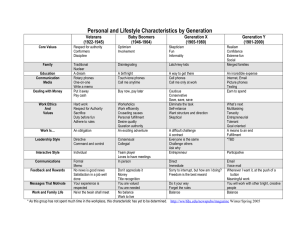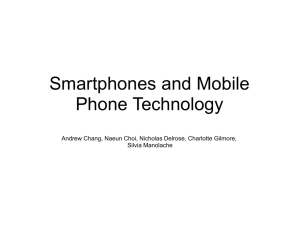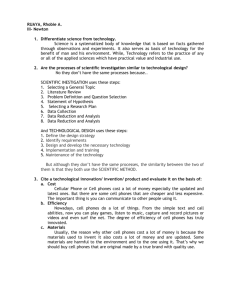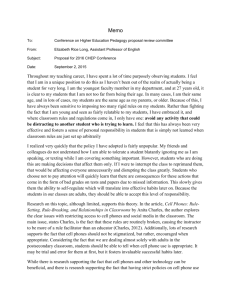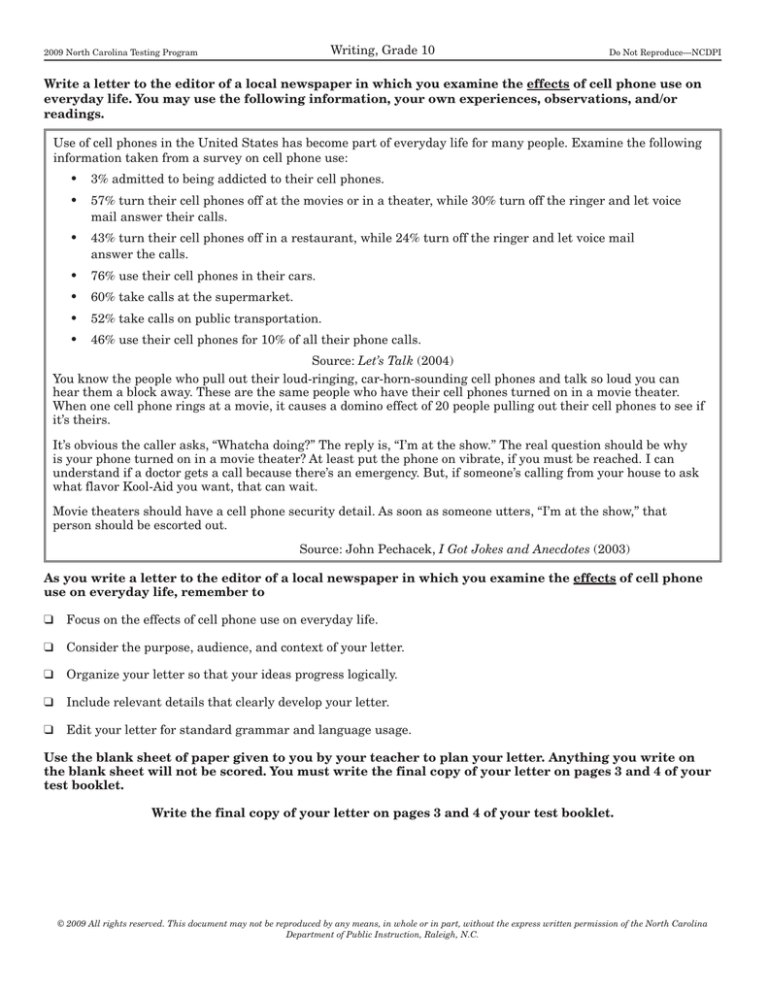
Writing, Grade 10
2009 North Carolina Testing Program
Do Not Reproduce—NCDPI
Write a letter to the editor of a local newspaper in which you examine the effects of cell phone use on
everyday life. You may use the following information, your own experiences, observations, and/or
readings.
Use of cell phones in the United States has become part of everyday life for many people. Examine the following
information taken from a survey on cell phone use:
•
3% admitted to being addicted to their cell phones.
•
57% turn their cell phones off at the movies or in a theater, while 30% turn off the ringer and let voice
mail answer their calls.
•
43% turn their cell phones off in a restaurant, while 24% turn off the ringer and let voice mail
answer the calls.
•
76% use their cell phones in their cars.
•
60% take calls at the supermarket.
•
52% take calls on public transportation.
•
46% use their cell phones for 10% of all their phone calls.
Source: Let’s Talk (2004)
You know the people who pull out their loud-ringing, car-horn-sounding cell phones and talk so loud you can
hear them a block away. These are the same people who have their cell phones turned on in a movie theater.
When one cell phone rings at a movie, it causes a domino effect of 20 people pulling out their cell phones to see if
it’s theirs.
It’s obvious the caller asks, “Whatcha doing?” The reply is, “I’m at the show.” The real question should be why
is your phone turned on in a movie theater? At least put the phone on vibrate, if you must be reached. I can
understand if a doctor gets a call because there’s an emergency. But, if someone’s calling from your house to ask
what flavor Kool-Aid you want, that can wait.
Movie theaters should have a cell phone security detail. As soon as someone utters, “I’m at the show,” that
person should be escorted out.
Source: John Pechacek, I Got Jokes and Anecdotes (2003)
As you write a letter to the editor of a local newspaper in which you examine the effects of cell phone
use on everyday life, remember to
❑
Focus on the effects of cell phone use on everyday life.
❑
Consider the purpose, audience, and context of your letter.
❑
Organize your letter so that your ideas progress logically.
❑
Include relevant details that clearly develop your letter.
❑
Edit your letter for standard grammar and language usage.
Use the blank sheet of paper given to you by your teacher to plan your letter. Anything you write on
the blank sheet will not be scored. You must write the final copy of your letter on pages 3 and 4 of your
test booklet.
Write the final copy of your letter on pages 3 and 4 of your test booklet.
© 2009 All rights reserved. This document may not be reproduced by any means, in whole or in part, without the express written permission of the North Carolina
Department of Public Instruction, Raleigh, N.C.

